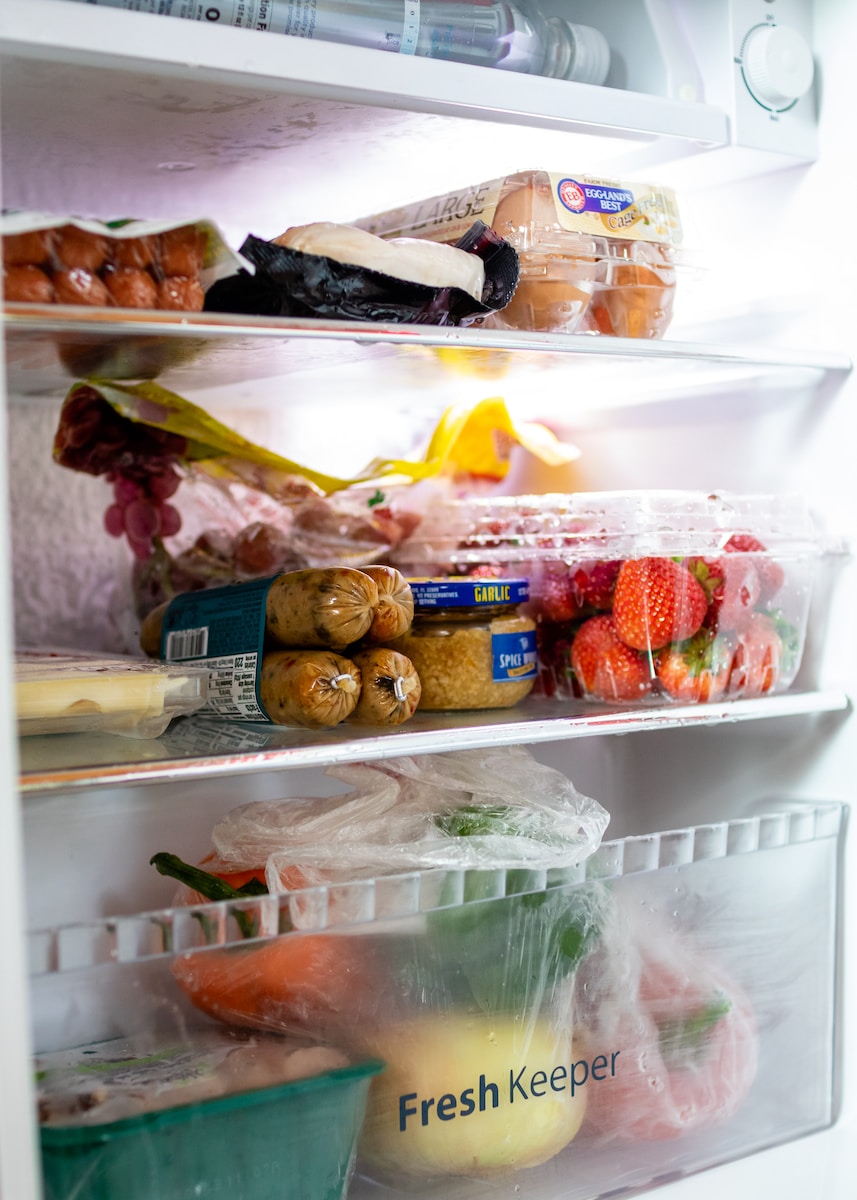Are you a new RV owner looking for advice on purchasing and maintaining your RV? If so, one important decision you’ll have to make is choosing between an electric or propane RV refrigerator for your vehicle. Both options have their own set of pros and cons, and understanding them can help you make an informed decision. In this article, we will discuss the differences between electric and propane RV refrigerators, their benefits, and the factors to consider when making your choice. So, let’s dive in and find out which option is best suited for your needs!
1. Electric Refrigerators
1.1 How Electric RV Refrigerators Work
Electric refrigerators are a common choice for RV owners due to their convenience and reliability. These refrigerators work based on the principle of heat transfer and the use of a compressor.
Inside the electric refrigerator, there is a closed system that contains a refrigerant fluid. The compressor, which is powered by electricity, compresses the refrigerant, causing it to become hot and high-pressure. The hot refrigerant then flows through a condenser coil located on the outside of the refrigerator. As the hot gas cools down, it turns into a liquid.
The liquid refrigerant then passes through an expansion valve, where it rapidly expands and evaporates. This process absorbs heat from the interior of the refrigerator, making it cool. The evaporated refrigerant returns to the compressor, and the cycle repeats.
1.2 Advantages of Electric Refrigerators
One of the major advantages of electric refrigerators is their reliability. They provide a consistent cooling temperature, ensuring that your food remains fresh and safe to consume. Electric RV refrigerators also offer better temperature control, allowing you to adjust the settings with ease.
Another advantage is that electric refrigerators don’t require any additional fuel source. As long as you have a steady supply of electricity, your refrigerator will operate efficiently. This makes it convenient for RV owners who have access to electrical hookups at RV parks or campsites.
1.3 Drawbacks of Electric Refrigerators
Despite their advantages, electric refrigerators do have some drawbacks. One of the main concerns is their dependency on electricity. If you’re traveling to remote areas without access to electricity, your refrigerator won’t be able to operate. This can be a significant limitation for those who enjoy off-grid camping or boondocking.
Electric refrigerators also tend to be more expensive to purchase compared to propane refrigerators. The initial investment might be higher, but it can be offset by lower operational costs if you have access to electricity.
1.4 Power Options for Electric Refrigerators
To power an electric refrigerator, you have a few options available. The most common method is to connect your RV to an electrical hookup at a campground or RV park. This provides a reliable source of electricity to keep your refrigerator running.
Alternatively, you can use a generator to power your electric refrigerator while off-grid. Make sure to choose a generator that can handle the power requirements of your refrigerator and other electrical appliances in your RV.
Some RVs also come equipped with solar panel systems. Solar power can be an excellent option for those who prefer sustainable energy sources. However, it’s important to ensure that your solar panels can generate enough power to meet the demands of your electric refrigerator.
1.5 Energy Efficiency of Electric Refrigerators
Energy efficiency is an important factor to consider when choosing an electric refrigerator for your RV. Energy-efficient models can help you save on electricity consumption, ultimately reducing your overall costs.
Look for electric refrigerators that have a high Energy Star rating. This indicates that the refrigerator meets or exceeds the energy efficiency standards set by the U.S. Environmental Protection Agency. Additionally, consider features like automatic defrosting and adjustable temperature controls, as they can contribute to energy efficiency.
1.6 Maintenance Considerations for Electric Refrigerators
Maintaining your electric refrigerator is crucial to ensure its optimal performance and longevity. Here are some maintenance tips:
- Keep the refrigerator clean: Regularly clean the interior, exterior, and condenser coils of your refrigerator. Remove any dirt or debris that may hinder the airflow.
- Check the door seals: Inspect the door seals for cracks or gaps. Replace them if necessary to maintain proper insulation and prevent cold air leakage.
- Level your RV: A properly leveled RV helps the refrigerator operate efficiently. Use a bubble level to ensure the refrigerator is level from side to side and front to back.
- Monitor the temperature: Regularly check the temperature inside the refrigerator to verify that it is cooling adequately. Adjust the temperature settings if needed.
- Ventilation is essential: Ensure that the venting system of your refrigerator is clear and unobstructed for proper airflow.
1.7 Cost of Electric Refrigerators
The cost of electric refrigerators for RVs can vary depending on various factors such as size, brand, and features. On average, you can expect to pay anywhere from $500 to $2,500 for an electric refrigerator.
Higher-end models with advanced features and larger storage capacity tend to be on the pricier side. However, it’s important to consider the long-term savings on operational costs when making your purchase decision.
1.8 Popular Electric Refrigerator Brands
When it comes to electric refrigerator brands for RVs, there are several reputable manufacturers to choose from. Some popular brands include:
- Dometic
- Norcold
- Atwood
- Vitrifrigo
These brands are known for their quality, reliability, and innovative features. It’s advisable to research and read customer reviews to find the best electric refrigerator that suits your needs and preferences.
1.9 Common Issues with Electric Refrigerators
While electric refrigerators are generally reliable, there are a few common issues that RV owners may encounter. Some of these include:
- Insufficient cooling: This can be caused by a faulty thermostat, dirty condenser coils, or a malfunctioning compressor.
- Frequent cycling: If your electric refrigerator is constantly cycling on and off, it could indicate a problem with the thermostat or the refrigerator’s cooling system.
- Excessive frost buildup: If you notice excessive frost or ice accumulation inside the refrigerator, it could be due to a broken defrost timer or a faulty defrost heater.
- Leaking water: Water leakage can be caused by a clogged defrost drain or a problem with the water supply line if your refrigerator has an ice maker or water dispenser.
1.10 Troubleshooting Tips for Electric RV Refrigerators
If you encounter any issues with your electric refrigerator, here are a few troubleshooting tips:
- Check the power supply: Ensure that the electrical connection is secure, and there is power reaching the refrigerator.
- Clean the condenser coils: If your refrigerator is not cooling properly, try cleaning the condenser coils to remove any dirt or debris.
- Adjust the temperature settings: If the refrigerator is not cooling adequately, check the temperature settings and adjust them if needed.
- Defrost the refrigerator: Excessive frost buildup can impact the cooling efficiency. If you notice frost, manually defrost the refrigerator and check if the issue is resolved.
- Seek professional help: If the troubleshooting tips don’t resolve the problem, it’s best to consult a professional RV technician who specializes in refrigerator repairs.
2. Propane Refrigerators
2.1 How Propane Refrigerators Work
Propane refrigerators, also known as absorption refrigerators, use heat rather than electricity to provide cooling. They are a popular choice for RVers who frequently travel to off-grid locations without access to electricity.
The operation of a propane refrigerator relies on a process called absorption cooling. Instead of using a compressor, propane refrigerators utilize heat, supplied by a propane flame or electric heating element, to drive the cooling process.
Inside the refrigerator, there are three main components: a generator, a condenser, and an evaporator. The generator consists of a propane burner or electric heating element and helps create a heat source. The condenser releases the heat absorbed from the interior of the refrigerator, and the evaporator facilitates the cooling process.
As the heat is applied to the generator, a mixture of chemicals, usually ammonia and hydrogen, begins to circulate. This circulating mixture creates a cycle of evaporation, condensation, and absorption which draws heat out of the refrigerator.
2.2 Advantages of Propane Refrigerators
Propane refrigerators offer several advantages that make them a popular choice among RV owners. One significant advantage is their ability to operate without electricity. This makes them ideal for boondocking or dry camping, where access to electrical hookups is limited or not available at all.
Another advantage is their energy efficiency. Propane refrigerators consume minimal energy compared to their electric counterparts. This can be especially beneficial when using alternative power sources, such as solar panels or propane tanks, as it helps conserve resources and prolong the time between refueling or recharging.
2.3 Drawbacks of Propane Refrigerators
While propane refrigerators offer unique advantages, they also come with some drawbacks to consider. One of the main concerns is the potential safety risks associated with using propane. Propane is a flammable gas, and any leakage or mishandling can lead to dangerous situations. It’s crucial to ensure proper installation and regular maintenance to minimize these risks.
Propane refrigerators also tend to be less temperature stable compared to electric models. Fluctuations in ambient temperature can affect the cooling efficiency, resulting in inconsistent temperature control inside the refrigerator. Additionally, the cooling process of propane refrigerators is generally slower than that of electric refrigerators.
2.4 Fuel Consumption for Propane Refrigerators
The fuel consumption of a propane refrigerator can vary depending on several factors, including the size of the refrigerator, usage patterns, and ambient temperature. On average, a propane refrigerator can consume approximately 1 to 2 pounds of propane per day.
It’s essential to monitor your propane levels regularly and ensure that you have an adequate supply for your needs. The consumption rate may increase in hotter climates or if the refrigerator is frequently opened or overfilled.
2.5 Energy Efficiency of Propane Refrigerators
Propane refrigerators are known for their energy efficiency, particularly when off-grid or in areas without electricity. The absence of electrical components, such as compressors or fans, helps reduce power consumption and increases the overall efficiency of the cooling system.
It’s important to note that while propane refrigerators are energy-efficient, they generate heat during operation. This heat needs to be vented properly to prevent overheating in the RV. Ensure that the ventilation system is unobstructed and allows for efficient heat dissipation.
2.6 Maintenance Considerations for Propane Refrigerators
To ensure the proper functioning and longevity of your propane refrigerator, regular maintenance is crucial. Here are some maintenance considerations:
- Clean the burner assembly: Over time, the burner assembly can accumulate dust and debris, affecting its performance. Clean it periodically using compressed air or a brush to remove any obstructions.
- Check the propane supply: Monitor the level of propane in your tank regularly, especially when using the refrigerator extensively. Ensure that the tank is properly filled to avoid interruptions in cooling.
- Inspect the flue and ventilation: Regularly check the flue and ventilation system for any blockages, such as bird nests or debris. Clean them if necessary to maintain proper airflow and prevent overheating.
- Test the thermocouple: The thermocouple is a safety device that shuts off the propane supply if the flame goes out. Test it periodically to ensure it’s functioning correctly and replace it if needed.
2.7 Cost of Propane Refrigerators
The cost of propane refrigerators for RVs can vary depending on the size, brand, and features. On average, you can expect to pay anywhere from $1,000 to $3,500 for a propane refrigerator.
Higher-end models with larger storage capacity and advanced features tend to be more expensive. However, the initial investment can be offset by lower operational costs, especially when boondocking or relying on alternative power sources.
2.8 Popular Propane RV Refrigerator Brands
Several reputable brands offer propane refrigerators specifically designed for RVs. Here are a few popular brands to consider:
These brands have established a strong reputation for quality and reliability in the RV industry. Conduct thorough research and read customer reviews to make an informed decision when selecting a propane refrigerator.
2.9 Common Issues with Propane Refrigerators
While propane refrigerators are generally reliable, there are a few common issues that may arise. Some of these include:
- Ignition problems: Propane RV refrigerators rely on proper ignition to initiate the cooling process. If you’re experiencing difficulties in igniting the burner, it may be due to a faulty ignition system or a blocked burner assembly.
- Inconsistent cooling: Fluctuations in temperature inside the refrigerator can be caused by factors such as ambient temperature, improper venting, or a malfunctioning thermostat.
- Gas odor: If you detect a strong gas odor around your propane refrigerator, it could indicate a gas leak. Immediately turn off the propane supply and seek professional assistance to locate and fix the leak.
- Insufficient cooling on propane mode: If your refrigerator works fine on electric mode but struggles to cool on propane mode, it may be due to issues with the burner assembly or the propane supply.
2.10 Troubleshooting Tips for Propane Refrigerators
If you encounter any issues with your propane refrigerator, here are some troubleshooting tips:
- Check the propane supply: Ensure that your propane tank is properly filled and that the propane supply valve is open and functional.
- Verify the ignition system: Inspect the ignition system for any blockages or malfunctions. Clean the burner assembly and ensure proper air and gas flow.
- Adjust the thermostat: If you’re experiencing temperature fluctuations, adjust the thermostat to a slightly higher or lower setting and monitor the refrigerator’s performance.
- Ventilation inspection: Check the flue and ventilation system for any blockages and ensure proper airflow to dissipate the heat generated by the refrigerator.
- Seek professional assistance: If you’re unable to resolve the issue or if you’re uncertain about performing repairs yourself, consult a professional RV technician with experience in propane refrigerator repairs.
In conclusion, both electric and propane refrigerators offer their unique advantages and considerations for RV owners. Electric RV refrigerators are convenient, reliable, and provide precise temperature control, but they require a steady supply of electricity. On the other hand, propane RV refrigerators are ideal for off-grid camping, have minimal energy consumption, but come with safety considerations. Ultimately, the choice depends on your specific needs, camping style, and availability of power sources.

Affiliate Disclosure: Some of the links on our website are affiliate links, meaning we may earn a small commission if you make a purchase through these links. This helps support our website and keeps our content free for our readers.


